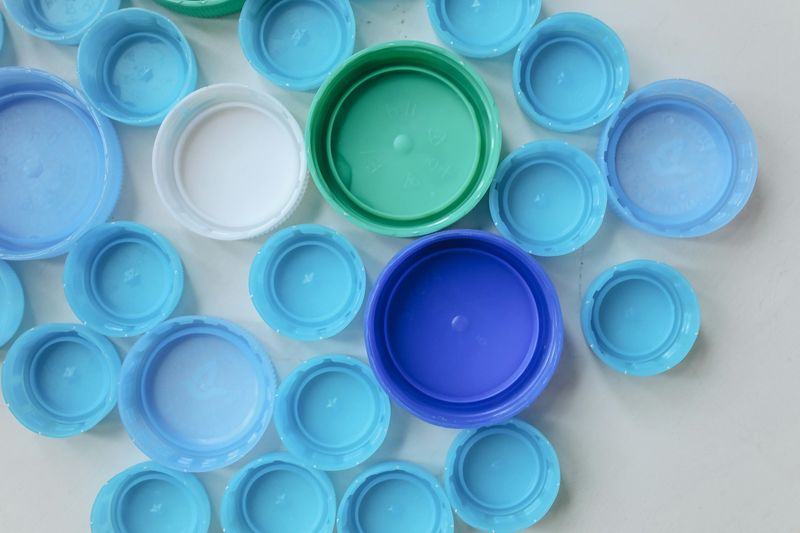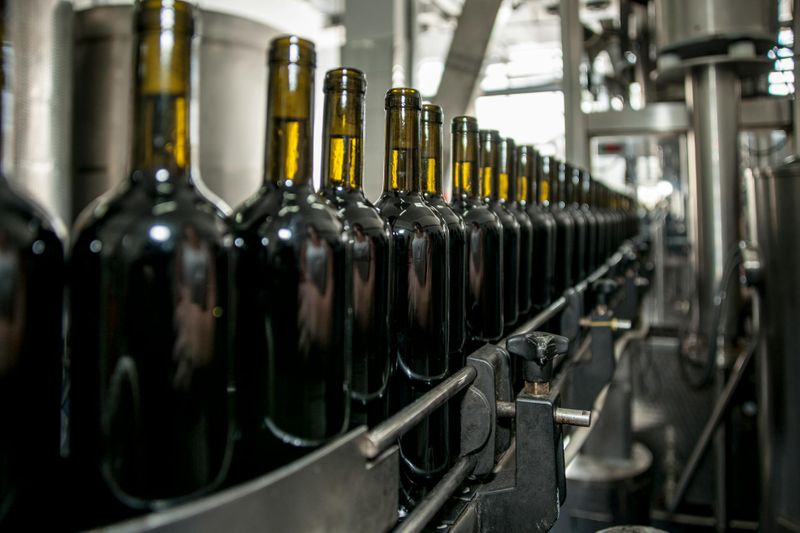At a glance
- Food production generally uses PET for its strength, hygiene, and recyclable properties.
- Wine bottling and beverage industries use PET for its shatter-proof, lightweight container.
- Food machinery manufacturers rely on PET for durable and hygienic components.
Polyethylene terephthalate (PET) engineering plastics have transformed industries by offering a versatile, durable, and cost-effective solution for various applications. PET’s ability to withstand high temperatures, resist chemicals, and be easily recycled has made it a material of choice for industries such as food production, niche products for food, food machinery manufacturers, wine bottling, beverage processing, and canning.
We look at how PET benefits the industry, most especially in areas like Shepparton, Goulburn, Murray Valley, and Southern NSW.
The Food Production Industry
Food production is one of the industries most revolutionised by PET engineering plastics. In food production, the safety and durability of packaging materials are crucial. PET’s inert nature, meaning it doesn’t react with food or beverages, makes it a prime choice for packaging consumables. PET packaging ensures that products are stored hygienically without compromising flavour or quality. Whether it’s used for packaging sauces, dairy products, or frozen foods, PET offers superior protection against moisture and contaminants.
The lightweight nature of PET also reduces transportation costs. For food producers in regions like Shepparton and Goulburn, where food production is a major economic driver, PET packaging helps to lower logistics expenses and decrease the carbon footprint by allowing more products to be shipped using less fuel. This is an essential advantage for businesses looking to maintain sustainability while minimising costs.
Niche Products for Food
Indeed, when the product at hand is of a premium food nature-where taste, but even more important, ' presentation is everything-' the characteristics of PET shine. Most food speciality products require a form of packaging that protects them but can make it as inviting to consumers as possible. With high transparency and a glossy finish, PET is well-suited for gourmet chocolates, artisanal cheeses, and exotic spices. This lets the consumer view the product while being protected from external factors such as air, moisture, and physical damage.
The strength-to-weight ratio for PET also enables packaging of niche products into light yet strong containers that would not alter the delicate nature of the product inside, yet being strong enough to last through journeys. In addition, as markets such as Murray Valley and Southern NSW become more aware of the sustainable nature of their food, so the recyclable nature of the PET will add value to it. PET's ability for re-utilisation and recycling is also in tune with the demands of environment-friendly packaging in niche food markets.
Food Machinery Manufacturers
PET also plays a very important role in the manufacturing of food machinery. Food machinery components have to be made from materials that meet high standards of hygiene to ensure that food is handled and produced safely. PET, being chemical- and bacteria-resistant, is commonly used in parts of food machinery that come into direct contact with food. Manufacturers rely on PET’s durability and heat resistance in high-performance machinery. PET components are not only robust but can also be moulded into complex shapes, making them perfect for various machinery parts like conveyor belts, gears, and protective shields. PET’s longevity helps reduce wear and tear, minimising downtime and maintenance costs in food processing plants.
In addition to its functional benefits, PET’s recyclability also supports the manufacturing industry’s push toward more sustainable practices. PET can be used in the production of 3D-printed machine parts and prototypes, reducing material waste and energy consumption. This is particularly important in regions such as Goulburn, where food machinery manufacturing plays a vital role in local economies.
READ MORE: National Engineering Plastics: Where Engineering Plastic Solutions Meet Excellence.
Wine Bottling and Beverage Processing
The major benefits of PET in the wine bottling and beverage processing industries are its non-shattering and lightweight features. It finds extensive application in soft drink, juice, and water packaging due to its high safety during handling and transport, compared to the more dangerous and fragile glass bottles. This is particularly helpful for big beverage processing plants, as the occurrence of any breakage would lead to expensive stops in the process.
PET for wine bottlers in regions such as the Murray Valley is an innovative solution. Since PET can make an airtight seal, the wines will stay fresh with the same aroma and taste. Traditionally, glass is the material wine has always been bottled with; however, PET brings in weight advantages and lower transport costs. With this in mind, a few wineries have tested PET for part of their production-a wine line that includes single servings or on-the-go servings.
Besides weight and durability, PET bottles have the added advantage of recyclability. Many beverage processing companies are going for recycled PET to further lessen their environmental impact. This trend goes in line with the increasing consumer demand for sustainable packaging, and the fact that PET is easily recyclable makes it a preferred material for beverage producers who want to meet these expectations.
Canning and Packaging
PET has revolutionised the canning industry, especially for foodstuffs that require strong containers resistant to heat from processing. PET containers are resistant to high temperatures used in such canning processes as pasteurisation and maintain the safety and quality of the food packed within the containers. These characteristics make PET an ideal material for canning goods like soups, sauces, and fruits.
Besides, the resistance of PET to chemicals means the packaging will not interact with acidic foods, something that is a concern in regular canning materials. This makes the stability critical for maintaining good taste and quality over a long period. These food manufacturers in Shepparton and Southern NSW manufacturing canned goods for both national and international markets find relief in PET as it provides cost-friendly and dependable packaging solutions acceptable across the globe for food packaging.
PET engineering plastics have become indispensable across industries such as food production, niche food products, food machinery manufacturing, wine bottling, beverage processing, and canning. Its versatility, strength, and recyclability have allowed PET to replace more traditional materials like glass and metal, leading to more efficient, sustainable, and cost-effective operations.
In that case, its adoption in places like Shepparton, Goulburn, Murray Valley, and Southern NSW, where the food and beverage industries are their economic mainstay, has become a game-changer for PET.
From packaging to machinery, the material PET has continued to support these industries in delivering quality products while observing sustainability. The part PET will play in shaping the future of these industries is likely to increase going forward, as businesses and consumers are starting to push even more towards greener practices.







